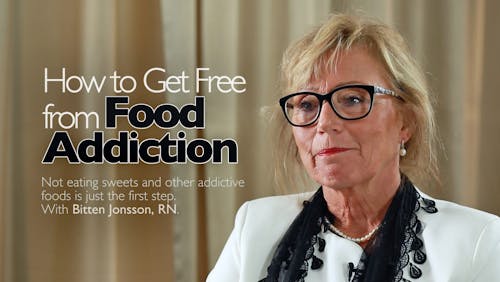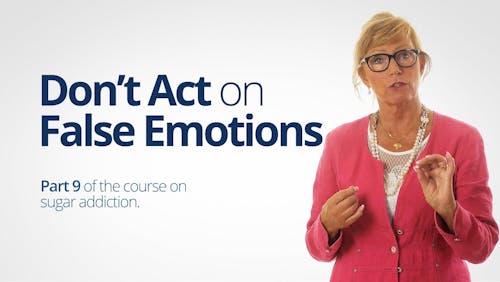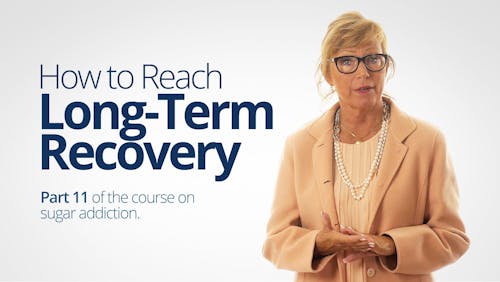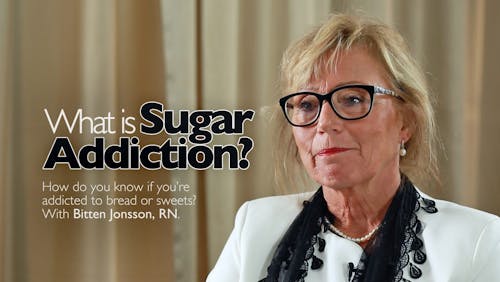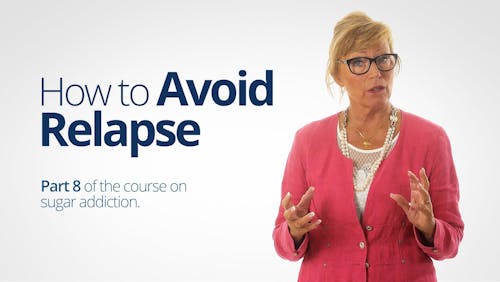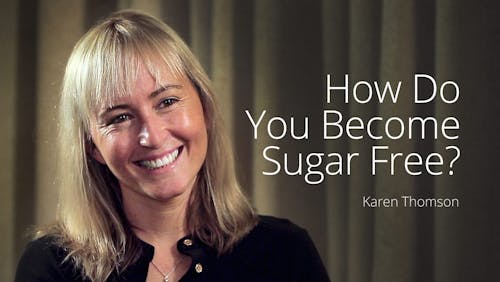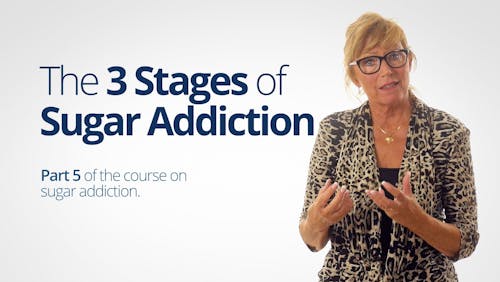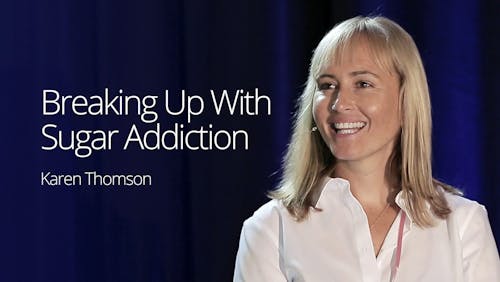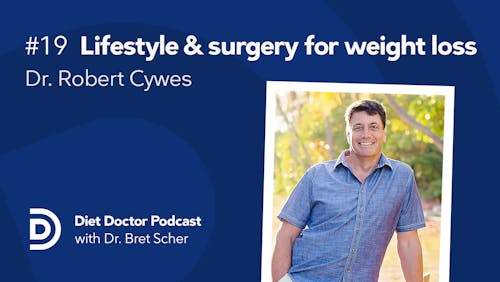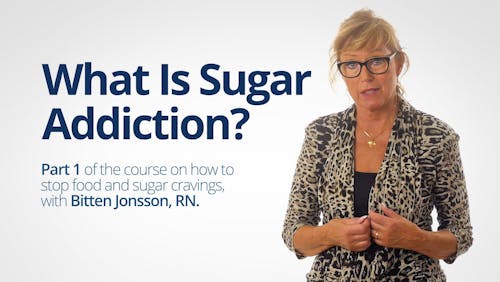The complete guide to sugar
Sugar has never been considered a healthy food, but it has still become a major part of our diet. Whether sugar is simply a source of “empty calories” or something more sinister has been an ongoing debate among nutrition experts. Read on to learn all about sugar, the many ways it impacts health, and practical takeaways for decreasing your intake.
What is sugar?
When you hear the term “sugar,” you probably think of white table sugar, or sucrose. In reality, there are a number of different types of sugar.
Chemically, sugars are either single sugar molecules (monosaccharides) or, more commonly, two sugar molecules linked together (disaccharides). These sugars occur naturally in many foods, and some types are also added to processed foods.
Monosaccharides
Glucose: Glucose is the main sugar found in blood and one of your body’s major fuels. In fact, the term “blood sugar” is often used interchangeably with “blood glucose.”
Food sources: fruit and fruit juice (especially bananas, cherries, dates, and oranges), beets, carrots, honey.
Fructose: Fructose is sometimes referred to as “fruit sugar” because it’s found in many fruits.
Food sources: fruit and fruit juice (especially apricots, grapes, pears, and watermelon), artichokes, sugar snap peas, honey, agave nectar.
Disaccharides
Sucrose: Sucrose contains one glucose molecule and one fructose molecule linked together.1 As a disaccharide, it is too large for your body to absorb. In your digestive tract, sucrose is broken down into glucose and fructose, which are absorbed separately into your bloodstream.
Food sources: fruits, table sugar, molasses, coconut sugar, honey, maple syrup, and any foods or beverages that contain added sucrose.
Lactose: Lactose contains one molecule of glucose and one molecule of galactose, another monosaccharide. It is the main sugar found in dairy foods. Similarly to sucrose, lactose is broken down into its monosaccharide components so that they can be absorbed into your bloodstream.
Food sources: milk, buttermilk, yogurt, ricotta cheese, cottage cheese, sour cream, whey.
Maltose: Maltose contains two glucose molecules linked together. It results from the breakdown of starch (a long chain of glucose molecules) in your digestive tract. In addition, it’s increasingly being used in place of high-fructose corn syrup in processed foods. Because your body breaks down maltose into two glucose molecules which are absorbed directly into your bloodstream, consuming starchy foods and beverages can raise blood sugar considerably even though they don’t taste sweet.2
Food sources: potatoes, sweet potatoes, corn, bread, pasta, beer, some breakfast cereals, processed foods.
Is “natural” sugar better?
Naturally occurring sugars are often considered healthier than plain white table sugar. However, though less processed, they still contain the same sugars and therefore may have similar effects in your body.
For instance, coconut sugar is about 70-80% sucrose, with the remainder coming from glucose and fructose.3
Agave nectar or syrup contains at least 60% fructose, with the remainder coming from other sugars and carbohydrates.4
Honey contains nearly equal portions of glucose and fructose as its main sugars, along with smaller amounts of sucrose, maltose, and other sugars.5
Sugars of all types are sometimes referred to as “simple carbohydrates” because they are small molecules that are rapidly absorbed into the bloodstream. Learn more about carbs:
Sugar’s effects in your body
Sugar has been implicated in several diseases and health problems, especially when consumed in large amounts. Based on its ability to quickly raise blood sugar, glucose would seem to be the most harmful component in sugar. However, some research has suggested that excess fructose may potentially be more concerning, although data are conflicting.6
It’s not exactly clear why various studies report disparate results, but it may have to do with the amount of fructose, the underlying health and activity level of the people studied, and potentially the funding source for the study.7
Fructose is absorbed more slowly into your bloodstream than glucose. Unlike glucose,
it is directly taken up by the liver, where it can be converted to glucose or glycogen, the storage form of glucose.8 However, at typical modern-day intakes, fructose is frequently converted by the liver into triglycerides (fat), setting the stage for insulin resistance, weight gain, fatty liver, and other health issues.9
Potential health effects of sugar overconsumption include:
- Insulin resistance and hyperinsulinemia: Triglycerides created from excess fructose are released into the bloodstream or stored in the liver. When the liver accumulates too many triglycerides, it becomes resistant to insulin and can no longer regulate blood sugar properly. Consequently, the pancreas produces more insulin to compensate, leading to elevated blood insulin levels (hyperinsulinemia).10
- Nonalcoholic fatty liver disease (NAFLD): High fructose intake has been recognized as a contributor to NAFLD, as it can lead to excessive storage of triglycerides in the liver. Moreover, researchers have reported that people with NAFLD convert fructose to triglycerides at much higher rates than those who don’t have the disease.11
- Potentially increased cardiovascular disease risk: In addition to raising triglycerides and insulin, high sugar intake may lead to decreased HDL cholesterol and smaller LDL particles — all of which may increase heart attack risk.12 A 2014 observational study found that people who consumed 25% or more of their calories from sugar were nearly three times as likely to die from heart disease as those who consumed the least added sugar.13
- Possibly increased inflammation: Research has shown a connection between sugar and inflammation, even at intakes considered “moderate.” In a three-week study, healthy young men who consumed 12 ounces (360 ml) of soda per day experienced a rise in inflammatory markers, along with adverse changes in blood cholesterol values.14
- Gut issues: High-sugar diets have been implicated as a possible risk factor for the development and progression of irritable bowel syndrome and inflammatory bowel disease. This may be due in part to adverse changes in gut bacteria. The exact role of sugar in this process is still unclear.15
- Elevated blood sugar: Fast-digesting carbs like sugar can have a major impact on blood sugar levels. One study found that whether prediabetic adults consumed 50 grams of honey, sucrose, or high-fructose corn syrup, they experienced similar elevations in blood sugar and inflammation.16
- Possibly increased Alzheimer’s disease risk: In light of the connection between insulin resistance, type 2 diabetes, and Alzheimer’s disease, emerging evidence suggests that in susceptible individuals, high sugar intake could perhaps increase the likelihood of developing Alzheimer’s.17
- Controversial link to ADHD: While much discussed, the potential link between sugar and ADHD has not been confirmed in controlled interventional studies. Therefore it is unclear if sugar plays a clear causative role in ADHD despite earlier observational findings suggesting it does.18 However, there appears to be some connection between food and ADHD, as a major study found improvements in ADHD symptoms by excluding many foods, including reducing the intake of sugar and processed foods.19
What is the recommended daily intake of sugar in the US?
The 2015-2020 Dietary Guidelines for Americans recommend that added sugars be limited to less than 10% of total calories. For a person consuming 2000 calories per day, this is 50 grams or about 12 teaspoons of sugar per day.
The American Heart Association‘s recommendations are somewhat stricter, with proposed limits of 25 grams (6 teaspoons) of added sugar per day for women and 38 grams (9 teaspoons) per day for men.
In 2015, The World Health Organization (WHO) recommended that added sugars be limited to less than 10% of total calorie intake, and ideally less than 5% of total calories (or about 6 teaspoons daily) for maximal health benefits.
Keep in mind that these limits are for added sugars, like white table sugar, honey, high fructose syrup, and all the processed foods and beverages to which they’re added. Those figures don’t include naturally occurring sugars in fruit or fruit juice. Fruit juice in particular contains significant amounts of sugar. In fact, some researchers have called for the complete elimination of 100% fruit juice from children’s diets in order to lower the alarming rates of childhood obesity.20
The recommended intake of added sugars in the dietary guidelines is lower than the estimated 17 teaspoons a day consumed by the average American. However, it may still be too high given the potential health risks — especially as the guidelines don’t include any limits on naturally occurring sugars at all.
Added sugar
While most people would agree that eating too much sugar isn’t wise, many have no idea how much they’re consuming on a regular basis. Just how much added sugar is in our food, anyway?
One study found that 74% of processed foods sold in US supermarkets between 2005 and 2009 contained added sugars.21 This includes condiments like barbecue sauce and ketchup, as well as “natural” snacks like granola bars and fruit smoothies.
Moreover, some of the worst offenders are non-fat and low-fat products that are marketed as healthy alternatives. When fat is removed from food, sugar is often added in order to compensate for the loss of flavor and creaminess.
Non-fat and low-fat foods high in sugar include:
- Flavored yogurt: Contains up to 28 grams (7 teaspoons) of sugar per cup
- Fat-free salad dressing: Contains up to 10 grams (2.5 teaspoons) of sugar per 2 Tablespoons
- Low-fat granola: Contains up to 28 grams (7 teaspoons) of sugar per cup
- Non-fat mocha: Contains up to 33 grams (8 teaspoons) of sugar per 16 ounces (450 ml)
Food labels don’t specify how much sugar in a product is added versus occurring naturally. If sugar is among the first three ingredients listed on a label, however, it’s certain to contain a significant amount of added sugar.
Also, keep in mind the many different names for sugar. Read ingredients labels with a keen eye to make sure you don’t overlook any of them. Here is a cheat sheet that can help you identify sugar on any food label, along with other less-than-healthy ingredients to avoid.
Sugar and the obesity epidemic
Obesity rates have increased dramatically since the 1980s, and it’s many believe that increased sugar intake has been a contributing factor.
From an evolutionary standpoint, sugar is a very recent addition to our diet — one that our bodies aren’t really designed to handle in any great amount.
When it was first produced in New Guinea back in the Middle Ages, sugar was only consumed by royalty and very wealthy individuals because it was rare and expensive. However, between the 1500s and1800s, sugar plantations were established in many countries, which significantly increased sugar’s availability and reduced its cost. This led to greater sugar consumption worldwide, which increased further when the prime minister of England removed the sugar tax in 1874, making it even more affordable. In fact, the average sugar intake is estimated to have doubled in the US and the UK between 1900 and 1970.22
Still, up until the past few decades, sugar wasn’t a major part of most people’s diets. Sweets were enjoyed occasionally, but they were generally reserved for holidays, birthdays, and other special occasions.
Today, sweet food is everywhere. From breakfast pastries to fruit smoothies, sodas, and sweetened coffee drinks, sugar is often consumed at every meal and snack.
Researchers have discussed a number of ways that excessive sugar intake can promote weight gain, including a centuries-old genetic mutation that gave rise to a “thrifty gene” that makes some people more susceptible to weight gain when they consume a lot of sugar — in particular, its fructose component.23
In his best-selling book “The Case Against Sugar,” science journalist Gary Taubes discusses sugar’s role in the diabetes and obesity epidemics. You can also watch him speak about it in this presentation, The problem with sugar.
7,006 views Add as favorite
The sugar industry
The sugar industry is a multibillion-dollar business with a vested interest in making sure people around the world continue to consume sugar on a regular basis.
Over the past 15 years, the amount of money US politicians have received from sugar lobbyists has steadily increased, reaching a peak of $8 million USD in 2016.24
Moreover, a group of researchers published disturbing information about the sugar industry dating back several decades.
After conducting an extensive review of documents from the Sugar Research Foundation, these researchers learned that in the 1960s and 1970s, the foundation paid scientists to publish a review that downplayed sugar’s connection to heart disease and focused on dietary fat as a culprit instead.25 Additionally, they found that the organization suppressed animal research suggesting that high sugar intake may increase the risk of bladder cancer.26
For additional information, read this article.
Dopamine is a chemical that helps control the pleasure and reward centers in your brain. Animal and human research has shown that in many, but not all, individuals, sugar activates dopamine receptors similarly to cocaine and other addictive drugs.27 The fact that some people feel addicted to sugar while others do not may be based on a person’s genetics, environment, and unique life experiences — much like any other addiction.
Sugar addiction
Low-sugar alternatives: Sparkling water with a splash of lemon, unsweetened iced tea, or: Low-sugar alternatives: Keto porridge, Maria’s keto pancakes, or Keto pancakes with berries and whipped cream. Low-sugar alternatives: Keto and dairy-free vanilla custard, Cinnamon and cardamom fat bombs, or Low-carb chia pudding. Low-sugar alternatives: Low-carb blueberry ice cream, Keto lemon ice cream, or Low-carb frozen yogurt popsicles. Low-sugar alternatives: Chocolate with a minimum of 80% cocoa solids, Low-carb chocolate fudge, or Keto chocolate and hazelnut spread. Alternative names for sugar: We hope so. We want to take this opportunity to mention that Diet Doctor takes no money from ads, industry or product sales. Our revenues come solely from members who want to support our purpose of empowering people everywhere to dramatically improve their health. Visual and practical tools to reduce sugar in your diet
Top 5 sources of sugar and low-sugar alternatives
5-step action plan for reducing sugar intake
Did you enjoy this guide?
Will you consider joining us as a member as we pursue our mission to make low carb simple?
The complete guide to sugar - the evidence
This guide is written by Franziska Spritzler, RD and was last updated on June 19, 2025. It was medically reviewed by Dr. Bret Scher, MD on October 3, 2022.
The guide contains scientific references. You can find these in the notes throughout the text, and click the links to read the peer-reviewed scientific papers. When appropriate we include a grading of the strength of the evidence, with a link to our policy on this. Our evidence-based guides are updated at least once per year to reflect and reference the latest science on the topic.
All our evidence-based health guides are written or reviewed by medical doctors who are experts on the topic. To stay unbiased we show no ads, sell no physical products, and take no money from the industry. We're fully funded by the people, via an optional membership. Most information at Diet Doctor is free forever.
Read more about our policies and work with evidence-based guides, nutritional controversies, our editorial team, and our medical review board.
Should you find any inaccuracy in this guide, please email andreas@dietdoctor.com.
Frontiers in Nutrition 2020: Saccharide characteristics and their potential health effects in perspective[overview article; ungraded] ↩
Nutrients 2011: Starches, sugars and obesity[overview article; ungraded] ↩
British Dental Journal 2017: Alternative sugars: Coconut sugar [overview article; ungraded]
↩Food Chemistry 2015: Identification, classification, and discrimination of agave syrups from natural sweeteners by infrared spectroscopy and HPAEC-PAD [mechanistic study; ungraded] ↩
Diabetes, Metabolic Syndrome and Obesity 2019: The negative and detrimental effects of high fructose on the liver, with special reference to metabolic disorders[overview article; ungraded]
Frontiers in Nutrition 2021: Chronic fructose substitution for glucose or sucrose in food or beverages and metabolic outcomes: An updated systematic review and meta-analysis [systematic review of randomized trials; strong evidence]
American Journal of Clinical Nutrition 2017: Chronic fructose substitution for glucose or sucrose in food or beverages has little effect on fasting blood glucose, insulin, or triglycerides: a systematic review and meta-analysis [systematic review of randomized trials; strong evidence]
JAMA Netwrok Opem 2020: Association of major food sources of fructose-containing sugars with incident metabolic syndrome: A systematic review and meta-analysis ↩
Journal of Physiology 2019: Health outcomes of a high fructose intake: the importance of physical activity[overview article; ungraded]
PLoS Medicine 2007: Relationship between funding source and conclusion among nutrition-related scientific articles[non-controlled study; weak evidence]
Journal of Physiology 2019: Fructose and metabolic health: governed by hepatic glycogen status?[overview article; ungraded] ↩
American Journal of Clinical Nutrition 1993: Intermediary metabolism of fructose”[overview article; ungraded] ↩
Journal of Clinical Investigations 2018: Fructose metabolism and metabolic disease[overview article; ungraded] ↩
Nutrition & Metabolism 2005: Fructose, insulin resistance, and metabolic dyslipidemia [overview article; ungraded]
↩Nutrients 2017: Fructose consumption, lipogenesis, and non-alcoholic fatty liver disease [overview article; ungraded]
↩Progress in Cardiovascular Diseases 2016: The evidence for saturated fat and for sugar related to coronary heart disease [overview article; ungraded]
↩JAMA Internal Medicine 2014: Added sugar intake and cardiovascular diseases mortality among US adults [nutritional epidemiology study, very weak evidence]
↩The American Journal of Clinical Nutrition 2011: Low to moderate sugar-sweetened beverage consumption impairs glucose and lipid metabolism and promotes inflammation in healthy young men: a randomized controlled trial [moderate evidence] ↩
Nutrients 2012: Diet-induced dysbiosis of the intestinal microbiota and the effects on immunity and disease [overview article; ungraded]
Inflammatory Bowel Diseases 2015: Combinatorial effects of diet and genetics on inflammatory bowel disease pathogenesis [overview article; ungraded]
↩The Journal of Nutrition 2015: Consumption of honey, sucrose, and high-fructose corn syrup produces similar metabolic effects in glucose-tolerant and -intolerant individuals [randomized trial; moderate evidence] ↩
Current Opinion in Clinical Nutrition and Metabolic Care 2013: High-sugar diets, type 2 diabetes and Alzheimer’s disease [overview article; ungraded]
Alzheimer’s and Dementia 2017: Sugary beverage intake and preclinical Alzheimer’s disease in the community [observational study with HR < 2; very weak evidence]
↩In a case-control study of over 300 children, those with the highest intakes of sugar-sweetened beverages were more than 3 times as likely to have ADHD as those with the lowest intakes.
International Journal of Environmental Research and Public Health 2016: Sugar-sweetened beverage consumption is adversely associated with childhood attention deficit/hyperactivity disorder [observational study with HR < 2; weak evidence] ↩
The Lancet 2011: Effects of a restricted elimination diet on the behaviour of children with attention-deficit hyperactivity disorder (INCA study): a randomised controlled trial [moderate evidence] ↩
American Journal of Public Health 2012: Reducing childhood obesity by eliminating 100% fruit juice [overview article; ungraded]
↩Journal of the Academy of Nutrition and Dietetics 2012: Use of caloric and non-caloric sweeteners in US consumer packaged foods, 2005–9 [overview article; ungraded]
↩The American Journal of Clinical Nutrition 2007: Potential role of sugar (fructose) in the epidemic of hypertension, obesity and the metabolic syndrome, diabetes, kidney disease, and cardiovascular disease [overview article; ungraded]
↩Advances in Nutrition 2017: Perspective: A historical and scientific perspective of sugar and its relation with obesity and diabetes [overview article; ungraded]
↩JAMA Intern Med. 2016: Sugar industry and coronary heart disease research [overview article; ungraded]
↩Plos Biology 2017: Sugar industry sponsorship of germ-free rodent studies linking sucrose to hyperlipidemia and cancer: An historical analysis of internal documents [overview article; ungraded]
↩Neuroscience and Biobehavioral Reviews 2008: Evidence for sugar addiction: behavioral and neurochemical effects of intermittent, excessive sugar intake [overview article; ungraded]
Clinical Chemistry 2018: Food addiction, high-glycemic-index carbohydrates, and obesity [overview article; ungraded]
↩



